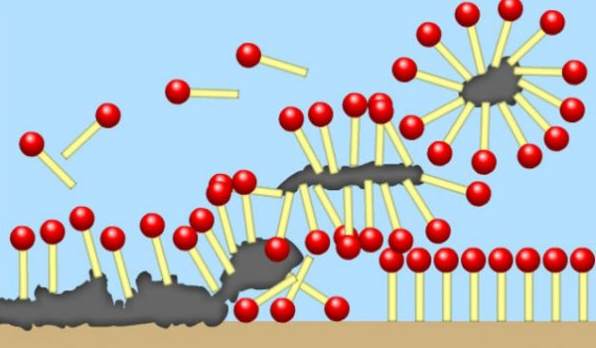Unless there are special circumstances, there is no need to wash clothes in warm water
Many people have misunderstandings or understandings about “Except for special circumstances, there is no need to wash clothes in warm water“. Let me take you with me to share with your friends and explore more about “Except for special circumstances, there is no need to wash clothes in warm water” knowledge…

More than 60% of Americans still wash their clothes in warm water, which is not only costly but also unfriendly to the environment. More importantly, washing clothes in warm water does not make our clothes cleaner, so what is the reason for washing clothes in cold water?
Considering that humans have to wash clothes, it is no wonder that they are all the footprints of washing clothes. Warm water is responsible for 75% of the energy used and greenhouse gas emissions produced by washing a load of clothes.
If you wash your clothes in cold water, you can save about $60 per year in electricity bills. This may not sound like a lot, but it has a big impact on the overall stress on the power grid.
Unless you really need to use hot water when washing smelly clothes or diapers, it is usually better to use cold water. Not only does it save electricity, it also makes your clothing last longer.
In fact, cold water can actually be helpful for certain garments. Low temperatures protect dyes and prevent clothing from fading. It also helps prevent clothing from shrinking, especially at seams. What’s more, some stains, such as blood, can only be washed with cold water. Warm water will make the blood stains stick firmly to the clothing.
So unless there are special circumstances, there is no need to wash with warm water. Here’s a laundry tip:
Cold water can basically clean everything, but you must follow some basic principles: only use laundry detergent, which requires hot water to completely dissolve; the amount of laundry detergent should be appropriate. Too little will not clean the product, and too much will cause problems. Residue.
Clothing will react to many kinds of chemical substances. The higher the temperature of the water, the faster the reaction. Therefore, along with chemical substances and mechanical energy, the heat energy generated by warm water can help remove stains and residues.
In recent years, most laundry detergents have been designed as cold water cleaning agents for environmental protection, but doing so also requires avoiding many tricky chemical restrictions.
One of the biggest challenges facing the development of cleaning agents is that they work in cold water. Generally, tap water has different temperatures in different geographical locations and seasons. For example, “cold” water temperatures in Florida are about 80 degrees Fahrenheit in the summer, while in Minnesota, “cold” water temperatures can be as low as 40 degrees Fahrenheit in the winter. Therefore, cold water cleaning agents need to be adaptable to a wide range of cold water temperatures.
To complicate matters further, surfactants, the “workhorse” of detergents, don’t work in cold water. These chemicals, which account for 30-40% of cleaning agents, involve a class of chemicals called linear alkylbenzonesulfates, long-chain chemicals called dodecane. Mary Johnson, chief scientist for fabric care at Tide and Downy, said surfactants “are lazy in cold water and can lead to discoloration and dirty garments.”
To solve this problem, Procter & Gamble chemists, who have been making innovative progress, created a specially formulated surfactant system to overcome these limitations in three aspects:
1. Various different types of surfactants are used, and for each type we use a different chain length. This allows the surfactant system to react quickly at different temperatures, even in 40-degree water.
2. High concentrations of polymers (long-chain molecules) are also used to aid in cleaning, remove stains, and even remove greasy stains in cold water.
3. Enzymes are used to break down stains, and surfactants can then lift them away.
In fact, enzymes are another important component of modern cleaning agents. Enzymes composed of biological components break down stains that would otherwise be difficult to remove from garments using traditional surfactants. P&G’s use of enzymes was inspired by the evolutionary system of organisms found in cold seawater, which also reacts slowly in cold seawater.
“In addition to using a variety of surfactants, adding polymers and enzymes, we also increased the amounts of these ingredients… to ensure that the garment can be washed even in cold water,” Johnson added.
In fact, you don’t have to think about any of this, you just need to start washing your clothes in cold water! Unless there are special circumstances, there is no need to wash clothing in warm water
AAAGFREGRTTHR
Through the above description of “Except for special circumstances, it is not necessary to wash clothes with warm water“, what do you think about “Except for special circumstances, there is no need to wash clothes with warm water” “, what are your understanding and thoughts, or if you are interested in purchasing fabrics, you are welcome to leave your comments below the website!
Disclaimer:
Disclaimer: Some of the texts, pictures, audios, and videos of some articles published on this site are from the Internet and do not represent the views of this site. The copyrights belong to the original authors. If you find that the information reproduced on this website infringes upon your rights and interests, please contact us and we will change or delete it as soon as possible.
AA





